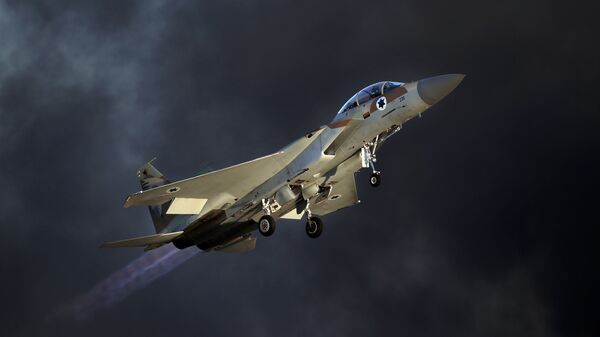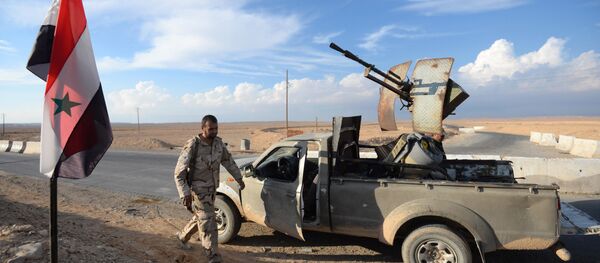"My policy is consistent," he said while on a visit to China. "We will not allow Israel to be attacked from Syrian territory and we will not tolerate the transfer of advanced weaponry [to Hezbollah] to the extent that we detect it. … It's our policy to launch strikes at convoys carrying sophisticated weaponry. … We will continue to attack whenever the Iranians smuggle advanced arms."
Netanyahu added that the Israel Defense Forces would conduct military operations if intelligence data confirms a planned weapons transfer and if the mission is "operationally feasible."
These comments came after Israel carried out several airstrikes on Hezbollah targets near the Syrian city of Palmyra, evoking a tough response from Damascus. The Syrian Arab Army fired three anti-aircraft missiles at Israeli warplanes. One of them was intercepted by the Israeli Arrow missile defense system.
The latest IDF mission in Syria "was targeted not against Hezbollah per se, but rather against warehouses where Iran-made weapons were stored, particularly those armament types that cannot be transferred to a terrorist organization. These include missiles. In addition, Israel launched airstrikes against weapons-laden convoys which were heading toward Lebanon. Hezbollah's military installations or assets of the Syrian Arab Army were not under attack," Israeli political analyst Yakov Kedmi told Vzglyad.
Unlike Russia and China, Israel and the United States consider Hezbollah to be a terrorist organization, while the European Union has blacklisted only the military wing of the Shia movement.
Never miss a story again — sign up to our Telegram channel and we'll keep you up to speed!



